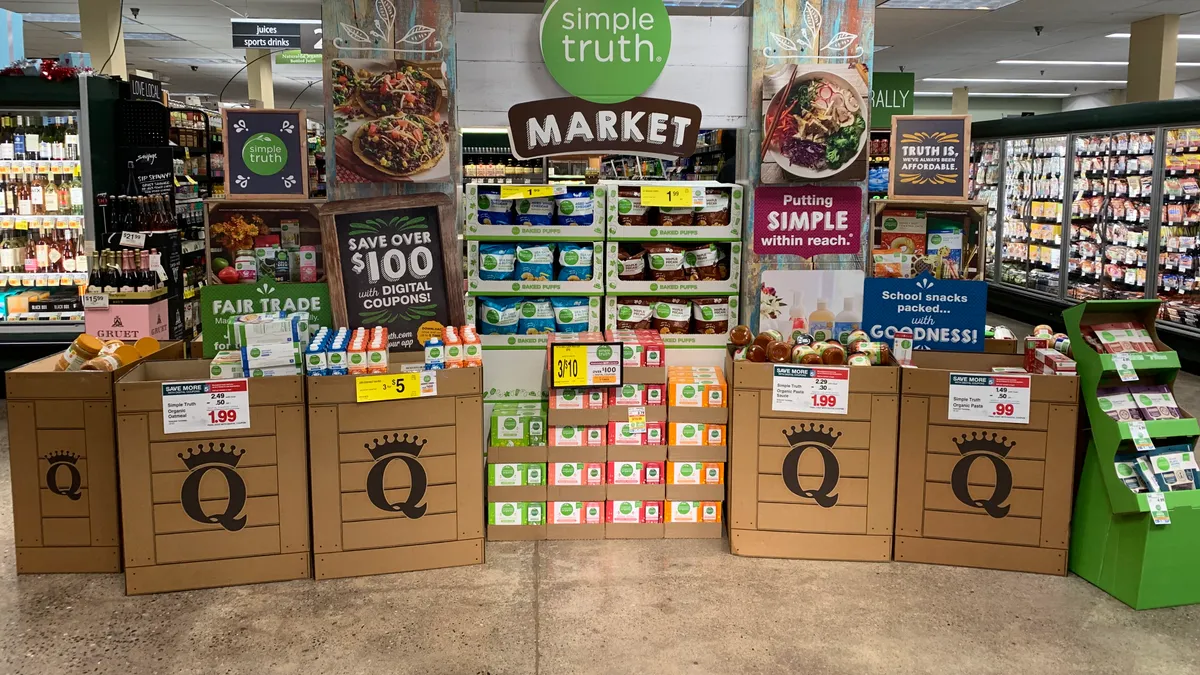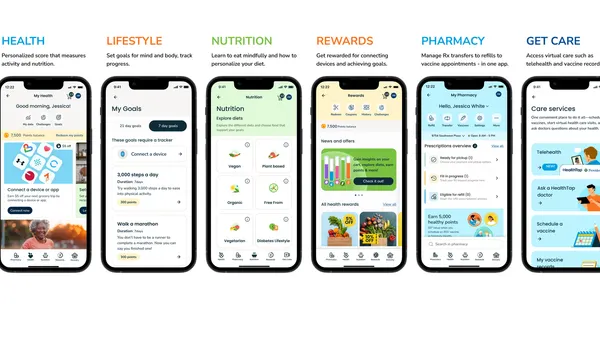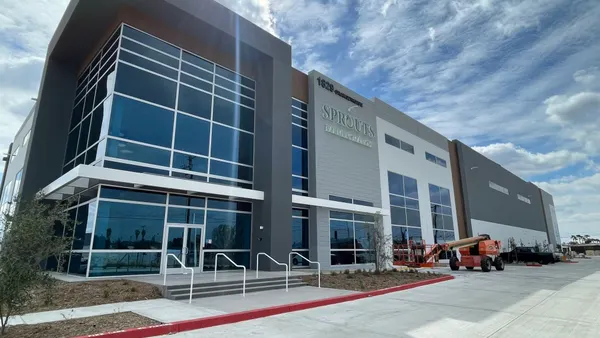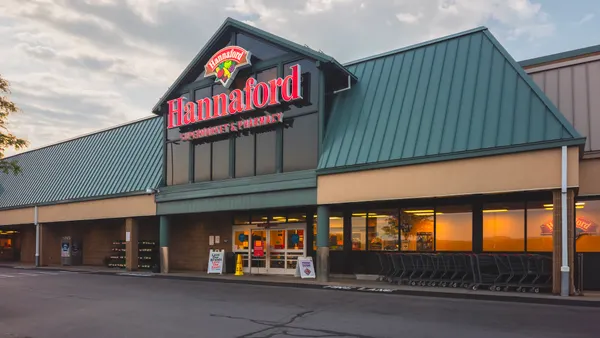Dive Brief:
- In 2021, 40% of Kroger’s private brand packaging was recyclable, compostable or reusable, and the grocer aims to achieve that for all of its own brand packaging by 2030, according to the company’s new Environmental, Social and Governance (ESG) report.
- The grocer also shared in the report that 2.7% of its private brand shelf-stable tuna was sourced last year from Marine Stewardship Council-certified fisheries, with a goal of reaching 20% by 2025.
- Kroger’s new ESG report marked the first time the grocer has disclosed its progress on some of its ESG goals tied to private brands.
Dive Insight:
Kroger’s latest ESG progress report comes at a time when grocers are placing more emphasis on revamping their private brand packaging, including making it more sustainable.
Kroger added 660 new private brand items in 2021, according to the report. Those additions included 33 plant-based products to its Simple Truth brand, which had more than 200 plant-based items at the end of the year.
Its Private Selection brand committed last year to sourcing all of its Fair Trade Certified coffee from international growing regions by mid-2022 — a goal the grocer said it has already achieved and plans to uphold as it adds more coffee items to the brand. Earlier this year, Kroger launched Simple Truth Organic tomatoes grown in Mexico and Arizona as its first Fair Trade Certified produce items under its private brands portfolio.
Kroger has worked with Kipster Farms to produce carbon-neutral, cage-free eggs under the grocer’s Simple Truth line, and is now expected to launch the egg products in select stores in early 2023, per the ESG report. When the partnership was first announced at the end of last year, Kroger said the eggs would become available in late 2022.
As inflation has risen, shoppers have turned to lower-priced private label products. Kroger’s identical sales for its store brands rose 10.2% in the second quarter, according to the grocer’s most recent earnings report.
In announcing its newest ESG report, Kroger said it plans to set a “more aggressive” roadmap for reducing greenhouse gases, in line with requirements of the Science Based Targets initiative. “The company's current 2030 goal is aligned with a well-below 2°C climate scenario; however, given the urgency for greater climate action, the goal will be strengthened to support a 1.5°C climate scenario,” it noted in a news release last week.
The release also outlined Kroger’s progress on animal welfare, human rights and its investments in workers, including an additional $1.2 billion in compensation and benefits added since 2018.
Other notable mentions from Kroger’s ESG report, which the grocer didn’t include in its press release, include:
- In 2022, every manager is expected to “actively mentor” an associate who has a different background than them. Kroger said this, along with “other goals and objectives,” will factor into managers’ performance and compensation.
- Last year, Kroger combined its manufacturing and logistics functions into an integrated supply chain team. The grocer said it is working to clarify roles and refine standards, reporting metrics and audit procedures.
- Kroger plans to start testing electric, on-highway vehicles, including tractors, yard tractors and Kroger Delivery vans, in 2022 and 2023.
- Kroger plans to build between this year and 2024 seven new retail stores using carbon dioxide refrigerant technology, which has the potential to reduce per-store emissions by more than 200 tons of carbon dioxide equivalent annually.
- Next year, Kroger aims to complete the process of placing glass doors on open refrigerated cases in “relevant stores” along with adding doors to medium-temperature refrigerated cases.
- Kroger plans to transition lighting in several areas over to LED options, including in its parking lots and produce departments.
Kroger noted that it plans to conduct a new materiality assessment in the second half of 2022 ahead of its 2023 ESG report.












